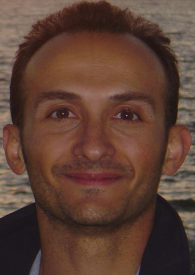
University of Calabria, Italy
Abstract
Internet of Things (IoT) aims to enable a world where physical objects, integrated into information networks, provide smart services for human beings. The introduction of edge computing in IoT can reduce the decision-making latency, save bandwidth resources, and extend the cloud services to be distributed at the edge of the network. However, edge-based IoT systems currently faces challenges in their decentralized trust management. Trust management plays an essential role for reliable data fusion and mining, provisioning of services with context-awareness, and enhanced user privacy and information security. In this talk, we analyze the edge-based IoT architectures that are available in the literature. Then, a comprehensive review of trust requirements in edge-enabled IoT systems is presented. We notably discuss about blockchain as a key enabler to address many trust related issues in IoT and consider closely the complementary interrelationships between blockchain and edge computing. Finally, we provide a detailed analysis of trusted edge computing based IoT systems' performance and recommend promising research directions for future investigations.
Biography:Giancarlo Fortino (SM’12) is Full Professor of Computer Engineering at the Dept of Informatics, Modeling, Electronics, and Systems of the University of Calabria (Unical), Italy. He received a PhD in Computer Engineering from Unical in 2000. He is also distinguished professor at Wuhan University of Technology and Huazhong Agricultural University (China), high-end expert at HUST (China), senior research fellow at the Italian ICAR-CNR Institute, CAS PIFI visiting scientist at SIAT – Shenzhen, and Distinguished Lecturer for IEEE Sensors Council. He is Web of Science Highly Cited Researcher 2020 and his GS bibliometrics are h-index=57 and n.citations = 12500+. He is the chair of the PhD School in ICT, the director of the Postgraduate Master course in INTER-IoT, and the director of the SPEME lab at Unical as well as co-chair of Joint labs on IoT established between Unical and WUT, SMU and HZAU Chinese universities, respectively. His research interests include wearable computing systems, e-Health, Internet of Things, and agent-based computing. Fortino is currently the scientific responsible of the Digital Health group of the Italian CINI National Laboratory at Unical. He is author of 500+ papers in int’l journals, conferences and books. He is (founding) series editor of IEEE Press Book Series on Human-Machine Systems and EiC of Springer Internet of Things series and AE of premier int'l journals such as IEEE TAFFC-CS, IEEE THMS, IEEE IoTJ, IEEE SJ, IEEE JBHI, IEEE SMCM, IEEE OJEMB, IEEE OJCS, Information Fusion, JNCA, EAAI, etc. He organized as chair many int’l workshops and conferences (100+), was involved in a huge number of int’l conferences/workshops (500+) as IPC member, is/was guest-editor of many special issues (60+). He is cofounder and CEO of SenSysCal S.r.l., a Unical spinoff focused on innovative IoT systems. Fortino is currently member of the IEEE SMCS BoG and of the IEEE Press BoG, and chair of the IEEE SMCS Italian Chapter.
---------------------------------------------------------------------------------------

Complutense University of Madrid, Spain
Abstract
Blockchain technology has enabled a new kind of distributed system. It has also allowed the emergence of novel new ways of governance and coordination. The most relevant of these are the so-called Decentralized Autonomous Organizations (DAOs). DAOs typically implement decision-making systems to make it possible for their online community to reach agreements. As a result of these agreements, the DAO operates automatically by executing the appropriate portion of code on the blockchain network (e.g., hire people, delivers payments, invests in financial products, etc). In the last few years, several platforms such as Aragon, DAOstack and DAOhaus, have emerged to facilitate the creation of DAOs. As a result, hundreds of new organizations have appeared, with their communities interacting mediated by blockchain. However, academia has yet to appropriately explore empirically this phenomenon.
In this talk, we aim to shed light on the state of the DAO ecosystem. For doing so, we will review the three main platforms that facilitate the creation and management of DAOs nowadays: Aragon, DAOstack and DAOhaus. We will introduce their main similarities and differences, compare their adoption and how they are evolving. We will also review some statistics about the DAOs that these platforms host. This overview will also help us to understand which kind of communities are populating the blockchain and what are the similarities and differences with other online communities.
Javier Arroyo is PhD in Computer Science from Universidad Pontificia Comillas since 2008 with a thesis on time series forecasting. He is an Associate Professor in the Department of Software Engineering and Artificial Intelligence of the Computer Science Faculty of Universidad Complutense de Madrid and a member of the Institute of Knowledge Technology of the same university.
Javier is Principal Investigator of the EU H2020 funded Fin-Tech project (2019-2021) on financial technology (big data, blockchain and artificial intelligence) and the Chain Community project (2019-2022), funded by the Spanish Ministry of Science, which analyzes the activity of decentralized communities in the blockchain. He is also a collaborator of the ERC Starting Grant P2P models that proposes the development of blockchain tools for decentralized governance and a member of the Management Committee of the COST Action FinAI (2020-2024).
Javier main research interest is data analysis and its applications in fields as diverse as online communities, finance, credit risk, fraud detection, computer vision, natural language processing, etc. As a result, he has co-authored over 40 papers.
Javier is an Associated Editor of the journal “Frontiers in Artificial Intelligence. Artificial Intelligence in Finance” and he recently served as Program Co-chair of the 17th International Symposium on Open Collaboration (OpenSym 2021).